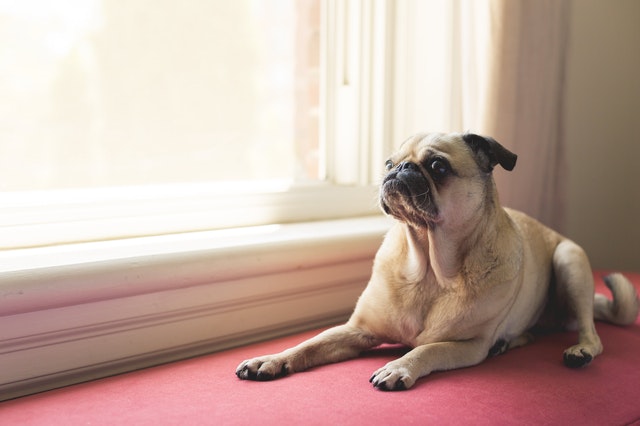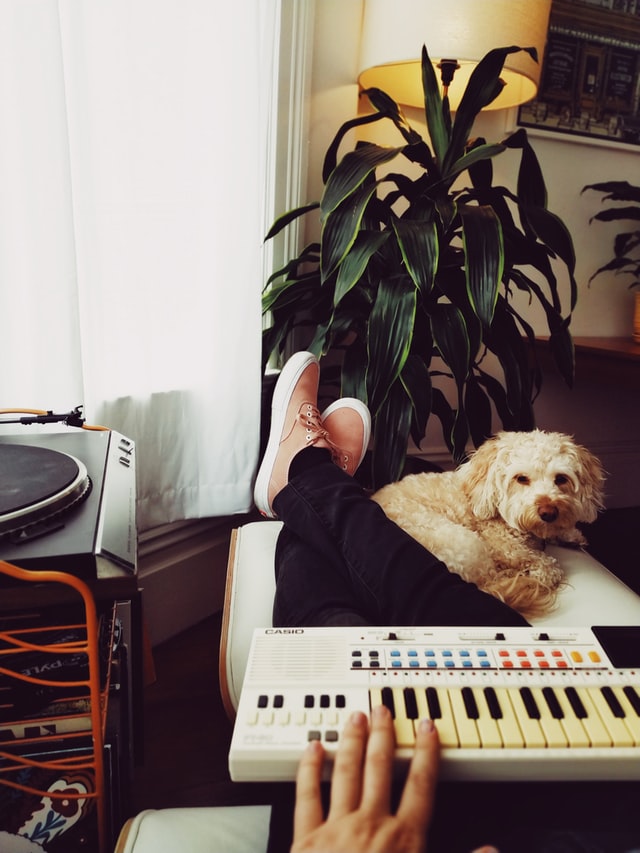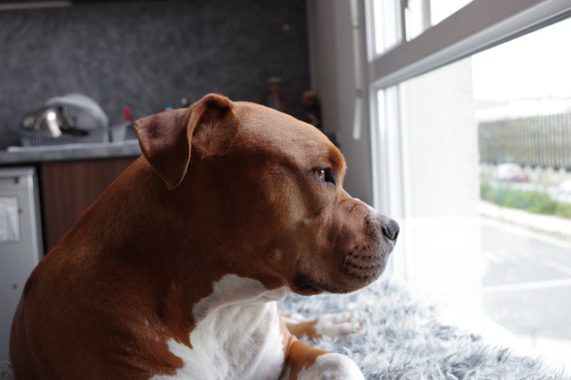Everybody knows that. When you don’t have a garden, you don’t take a dog! It’s a well-known one. But is this statement true? Why can’t we have a dog in an apartment? Which dogs can live in an apartment? This topic is often debated.
Dogs don’t ask to live with us, they don’t choose their families. Their lives are the result of our own choices. We have to be responsible for their lives, as much as we can. And living in an apartment is not inevitable if you are responsible!

Dog Needs Job Mode
To understand if a dog can live in an apartment, one must first know the needs of its species, but also be well informed about the needs that will vary from one individual to another. There are therefore main needs (outside of food) that are often not sufficiently respected. Here they are:
- Your dog has a need for safety: yes he needs to know that where he lives, he can always be safe no matter what. The bond he builds and forges with his master is very important. When focusing on the dog’s feelings, it is important to understand that coercive education will not help the dog feel comfortable in his own family, quite the contrary. If your dog is too scared and on his guard, it is interesting to try to find out the cause in order to help him fix it.
- Your dog has physical needs: The locomotor activity will vary depending on the dog. Does he have a genetic predisposition that would lead him to have specific needs as often so-called sheepdogs. Your dog’s personality also comes into play. Does he like to move? Or, on the contrary, stay more “fathery.” You really need to know your dog’s needs in order to satisfy them. He needs freedom of movement. Suffice to say that leaving a dog at the tether in a garden is far from being good for him and no excuse is then valid in this case.
- Your dog has mental needs: coupled with physical activity, the dog’s mental activity is too often forgotten, even underestimated. The dog is an intelligent species that needs to be stimulated mentally. It is very unsolicited while it plays a major part in the balance of the dog. Among these mental needs, it will have olfactory needs. The dog lives in a world of smell. He must be able to explore his neighborhood and the world through his nose. It is the stimulation of these senses that comes into play. To be able to smell new smells, new environments or new humans.
- Your dog has social needs: As every human being needs to speak or know other humans, the dog will need to be in contact with these fellow humans, because it is a social being. Allowing your dog to meet well throughout your life prevents them from having behavioural and aggressive problems. But he also needs contact with his master. And yes, among social needs, he will need the love of his family. He needs company.
Can these apartment needs be implemented?
The answer is yes! Of course you can respect the needs of your dog and live in an apartment. It is not uncommon that some dogs are unhappy in a house with a garden than dogs living in apartments. And the reason is quite simple: the dogs that live in apartments, go out every day. While those whose masters own a garden, usually simply open the garden to him. It is of course a generality, that there are also many loving masters who do what is necessary, even when they have a garden. Here are some tips based on the dog’s needs (not exhaustive list as it may vary from dog to dog):
- Need for safety: you don’t have to be your dog. Day-to-day benevolence is the only method that will help your dog feel safe. If he’s doing “stupidity” in your absence, don’t bother scolding him. There’s no point in that. Your dog will think your return is negative and he will feel oppressed. Instead, find out why your dog is acting this way (frustration, lack of expense, stress when you leave, etc.).
- Physical need: get your dog out as much as possible! Give him time! Don’t leave him alone all day, don’t let him wait without ever doing anything and he’ll get used to the apartment. If you can’t come home and take it out during the day and it’s a long one, there are solutions! Call on family, friends or a Pet-sitter to get your dog out. Do a regular sports activity with him. Enjoy it plenty of dog sports exist.
- Mental needs: give them something to look after in your absence! Buy a game of stimulation or occupation. Make a sniffing mat (snuffle mate) or hide some croquettes in the apartment. Allow him to wait for you serenely by taking care of himself. Change places to walk so that he has more and more fun.
- Social needs: When you take your dog, take him to see some dog buddies. Go to a dog park to have fun, express himself and communicate with his own species. Is your dog reactive where you have any doubts about its sociability? Don’t hesitate to get help from a professional canine educator.

As you can see, it’s easily achievable! But can all dogs live in apartments?
Dog made to live in apartment
There is no list to conclude that certain breeds are made for the apartment. On the other hand, a few details are to be taken into account if you want to adopt a dog in an apartment.
- If your apartment is small, it is best to avoid taking a very large dog like a Newfoundlander. Not because he couldn’t get used to it, but because it might not be very practical because of its size. Make sure your dog has a place where he can isolate himself in peace if he feels the need.
- Avoid easily barking breeds. It is indeed a reflection to be had. Barking is a normal communication in any dog. But some bark more naturally than others. You don’t have to give your dog an electric collar because you get a complaint from your neighbors!
- If you adopt your adult dog, make sure that living in a restricted environment indoors does not put him in a state of anxiety.
Having a dog involves a great responsibility whether you live in an apartment or a house with a garden. Dogs should always have their needs met. Living in an apartment often allows the dog to fill more need than the one that will not come out of his garden. The garden is for him like another room of the house which after a few minutes brings no more stimulation. The important thing is to have time to spend with your dog and to be ready to take it on. Because while most dogs can live in apartments, not all humans are able to have a dog in an apartment!

